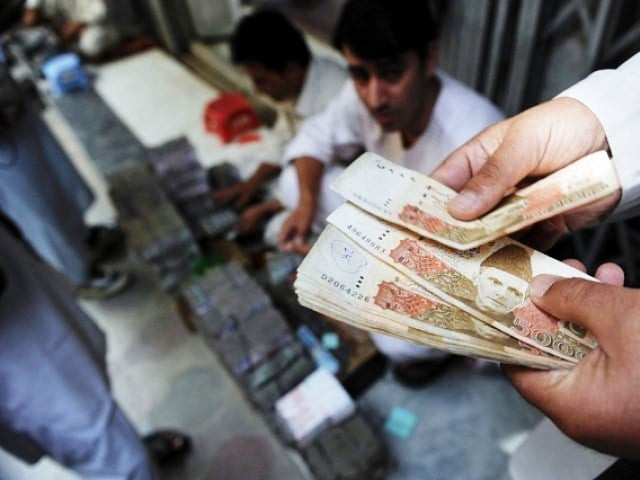Banking sector proposes reduction in tax rate to 30%
Request is part of proposals that PBA has submitted to FBR.

PHOTO: AFP
The request is part of the budget proposals the PBA has submitted to the Federal Board of Revenue (FBR) for the banking sector.
While the government took a positive step by progressively reducing income tax rates for business income of corporate sector from 35% to 34% for tax year 2014, which is now down to 30% for tax year 2018, no such reduction has been provided for banks, according to a press release.
As govt aims to widen tax net, return filers shrink 17%
In fact, the lower tax rate on capital gains and dividend income of banks has been raised to a uniform rate of 35% from tax year 2015, it added.
Some of the PBA’s key recommendations for federal budget 2017-18 are as follows.
Proposals
The PBA has suggested deletion of Section III (4) of ITO 2001 and amendment of Pakistan Economic Reform Act (PERA 1992) by excluding all persons resident in Pakistan, as this section presently provides immunity to a tax payer on the source of an amount which has been remitted from outside Pakistan in foreign exchange through the banking channels.
In PBA’s view, the provisions are often misused as some businessmen may remit undeclared income through unofficial channels, which is then brought into Pakistan in foreign exchange through banking channels. While no taxes are paid on such (undeclared) income, it can be laundered into white money at a small cost of 3% to 4%. This recommendation of the PBA will help curb the practice of whitening of money under the umbrella of Protection of Economic Reforms Act (PERA).
As for advance tax on banking transactions other than cash, under Section 236P, vulnerable groups such as widows, pensioners, retirees, students receive very low compensation/income that falls below the taxable threshold and they are not liable to pay tax. But withholding tax is deducted on their savings whenever they make withdrawals, which is unfair as they cannot claim credit for the deducted amount.
Such tax is also likely to adversely affect the National Financial Inclusion Strategy and lead to financial exclusion. PBA suggests that Section 236P should be removed or exemption should be provided to the vulnerable groups and the threshold of transfer/ transactions increased to Rs100, 000.
In line with its earlier discussions with the FBR, the PBA has been consistently suggesting that Sections 165 and 165A of Income Tax Ordinance, 2001, which is a part of general law, cannot override special laws including Protection of Economic Reform Act (PERA), the State Bank of Pakistan (SBP) Act, Banking Companies Ordinance and SBP’s regulations. It should, therefore, be dispensed with and the law amended.
Sindh miffed over Centre’s ‘illegal’ tax collection move
PBA is of the view that the purpose of the provisions in banking and other laws is to maintain confidence in the banking system and unnecessary submission/disclosures of customer information should be avoided.
PBA has also recommended that to enable banks to comply with Section 165B, introduced via Finance Bill 2016 - 2017, the special laws dealing with banking secrecy matter, section 3 read with section 9 PERA, 1992, Section 33A of BCO may be suitably amended.
For Islamic Banks, PBA has proposed to add a new sub-rule to Rule (3) of the seventh schedule, specifically mentioning Musharakah, Modaraba, Murabaha (including Commodity Murabaha), Musawama, Ijarah, Istisna and Salam and any other sharia compliant transaction as a financing transaction and not as trading activity.
To encourage mobilisation of deposits for the Micro Finance Banks (MFBs), tax exemption for “Not for Profit” organisations on profit on debt from scheduled banks should also be applicable on profit on debt from MFBs. Similarly, all Provident Funds/Gratuity may also be allowed to deposit funds with MFBs, as scheduled banks and MFBs are both regulated by the SBP.
Published in The Express Tribune, April 5th, 2017.
Like Business on Facebook, follow @TribuneBiz on Twitter to stay informed and join in the conversation.



















COMMENTS
Comments are moderated and generally will be posted if they are on-topic and not abusive.
For more information, please see our Comments FAQ